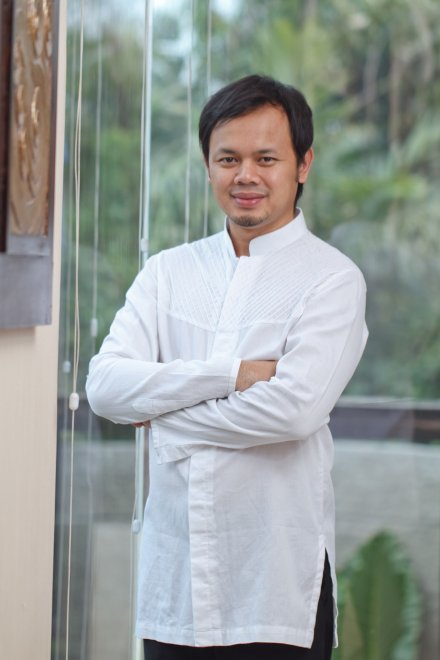Q&A with Bima Arya, Mayor-elect of Bogor
AIYA catches up with one of the exciting young leaders changing the face of Indonesian politics
When Bima Arya was travelling around Indonesia after returning from studying in Australia, he was struck by something he saw. In numerous regions, the local political leaders would construct palatial official residences with swimming pools, helipads and theatres, and garages full of luxury cars—often just a few hundred metres away from slums where the poor struggled to get by. ‘I thought: “what do these leaders feel when they look at photos of Indonesian children crossing rivers on ropes to get to school?” Is this the kind of leadership we want in our country?’, says Bima.
He didn’t just complain—he got involved. After an innovative election campaign the voters of Bogor, a city of 1 million people located in the hills south of Jakarta, picked him to be their next mayor. He has promised to crack down on corruption in the city’s government, improve environmental protection and public transport, and involve the community in urban planning and design. He has attracted attention from international media like the Wall Street Journal as one of the young reformers shaking up local politics in Indonesia. He’s also got Australian connections to boot, holding a Masters from Monash and a PhD from the Australian National University.
AIYA’s Liam Gammon had a chat with Bima this week during his visit to the ANU.
AIYA: How do you see the role of young people in Indonesia’s democratic consolidation?
Bima: A lot of my optimism about Indonesia is based on the demographic bonus. It’ll be a disaster if we don’t take advantage of this. Young people are idealistic and they want change, and this is part of what I harnessed when I ran for mayor, using the internet and social media to get our message out. It’s cheaper and more effective campaigning this way.
AIYA: We read a lot about the expansion of the Indonesian middle class and how it’ll affect the economy, but not so much about what role they have in politics. Do you have any thoughts on this?
Bima: It will change politics. You can see how the middle class act in elections—their support can’t be bought. They get angry if the see somebody offering them sembako (staple goods) in exchange for their votes. They want somebody who can appeal to them with ideas. Look at leaders like Joko Widodo in Jakarta, Ridwan Kamil in Bandung, and Ganjar Pranowo in Central Java—I believe they were all helped a lot by middle class voters, and this is only the beginning of a bigger trend.
AIYA: Indonesia is also rapidly urbanising. How do city governments deal with the enormous development challenges that come with it?
Bima: The way we’ve developed out cities has been misguided. I look at Bogor, my own hometown, and see the uncontrolled development of malls and high rise towers—totally inappropriate on planning and environmental grounds. One of the staff of our famous botanical gardens actually told me that over-extraction of groundwater due to overdevelopment is harming the health of the gardens. It has a lot to do with city governments being too close to businesspeople.
Part of the solution is to bring communities into the planning process. Currently, our consultation processes are just a formality. I want to make it meaningful: for example, we have so many spaces in Bogor that can be blocked off from development and turned into parks. Why not get university students and local community groups to design them, rather than use the same old designs from the civil service?
AIYA: We’ve had direct elections for local government heads and the presidency for ten years now. How do you think this has improved Indonesian democracy? Where do you see it going?
Bima: I believe we’re on the right track, and I think the expansion of the middle class is a good trend. But it’s important that we retain direct elections in local government. With the direct elections, the people get their voice heard. Leaders who understand that you have to be inclusive and participative, like Ridwan Kamil and Jokowi, will benefit from this. You have to spend time in the community, listening, making people feel that attention is being paid to their needs. It’s hard work, but politicians must do it now.
I see that this new crop of younger reformers as a poros kebaikan—an ‘axis of virtue’—that can promote change. We can work together, sharing ideas and sharing experiences about how to make government work better.


